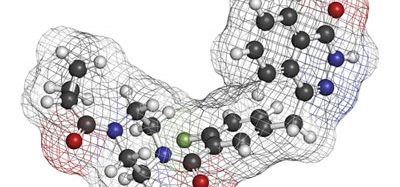Expert view: The importance of accurate synthetic DNA fragments
Posted: 13 September 2019 | Thermo Fisher Scientfic | No comments yet
Innovations in synthesis technology and gene synthesis have become a powerful and valuable means of obtaining genetic material.
As these technologies have advanced, it has become important that the synthetic DNA fragments are created with high accuracy to streamline analysis and discovery.
The process of de novo gene synthesis involves assembly and polymerase chain reaction (PCR) amplification of chemically-synthesised oligonucleotides. Since this chemistry is not entirely perfect, random sequence errors occur in a small fraction of molecules during oligonucleotide synthesis that remain throughout the downstream assembly process. Cloning and sequencing, therefore, is a reasonable way to screen for error-free molecules and discard those with mutations. While error-free clones are offered as a service, many scientists prefer to obtain linear synthetic DNA fragments to perform cloning and sequencing themselves for a variety of applications, including direct cloning for protein expression, CRISPR-based genome editing or in vitro transcription and translation. Regardless of the process, minimising total errors in the DNA is key to reducing downstream efforts and improving experimental results.
Perfecting oligonucleotide synthesis can increase the correctness of the non-cloned synthetic DNA product. However, this usually comes with longer synthesis times and higher reagent costs. After oligonucleotide assembly, the inherent defects in the DNA product can be further reduced by enzymatic error correction, using a cocktail of mismatch endonucleases that cleave double-stranded DNA (dsDNA) heteroduplexes at mispriming positions, or by depleting molecules with errors with mismatch binding proteins. By combining multiple error correction steps, we were able to increase the accuracy of GeneArt™ High-Q Strings™ DNA fragments to less than one random error in 10,000bp versus an industry average of one in 3,000. Therefore, High-Q Strings provides an accuracy of 82 percent; high enough to sequence only one or two clones of a 2kb DNA fragment to ensure finding the error‑free clone.
Related topics
DNA, In Vitro, Polymerase Chain Reactions (PCRs), Technology
Related organisations
Thermo Fisher Scientific








